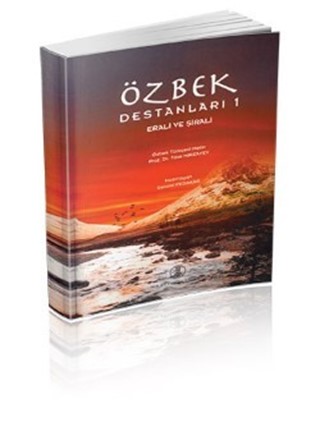
Özbek Destanları I: Erali ve Şirali / Uzbek Epics I: Erali and Shirali
“Uzbek Epics 1” is the 35th of the works under the “Detection of Turkish World Epic, Transferring to Turkey Turkish and Publishing Project" headed by Prof. Dr. Fikret Türkmen. In this work titled “Uzbek Epics 1: Erali and Şirali”, it is colorful that Kara Han who is childless, had children, that the heroes named Erali and Şirali had to leave their homeland due to the slander of their stepmothers, and that the children separated from each other come back together and return to their homeland after experiencing various adventures. The epic of Erali and Şirali, which is narrated with scenes and dialogues is discussed. In the first part of the Introduction of the work titled "Epic Understanding in Uzbeks and Classification of Uzbek Epics", the ideas put forward by scientists working on Uzbek epics on the subject of epic genre and classification of Uzbek epics are included. The second part of the introduction, named "Studies on Uzbek Epics", is divided into two subgroups as "Text Publications" and "Studies". In this section, some important studies about Uzbek epics between 1920-2000 are presented. In the third and fourth parts of the introduction, information was given about the studies on the epic of Erali and Şirali and the epic narrator İslam Şair Nazaroğlu. Preamble with the transcribed text of the epic then transferred to Turkey Turkish text is given in full. At the end of the work, there is a notes section explaining some words in the epic, a bibliography, an index of personal and place names.
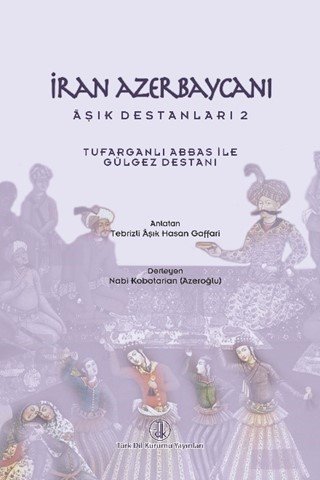
İran Azerbaycanı Âşık Destanları II: Tufarganlı Abbas ile Gülgez Destanı / Iranian Azerbaijani Minor Epics II: Abbas of Tufargan and Gulgez
In the variant of Tabriz which was compiled from Asik Hasan Gaffari, the struggle of Shah Abbas (one of the Safavid kings) and Ashik Abbas for Gulgez are mentioned.
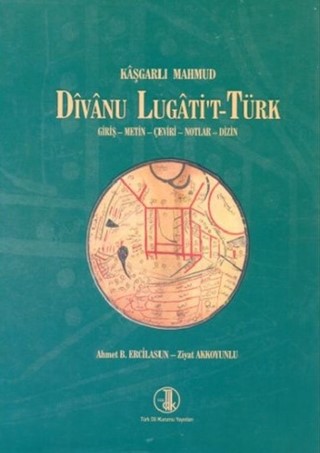
Divanu Lugati't-Türk :Giriş-Metin-Çeviri-Notlar-Dizin / Divanu Lugati't-Türk: Introduction-Text-Translation-Notes-Index
In this work, which is a new publication of Dîvânu Lugâti’t-Türk, the text was reconstructed and the translation was re-translated. What we mean by "Text" is the whole of the Turkish material in Dîvânu Lugâti't-Türk. Words, phrases, sentences, proverbs, poems and even additions. The correct reading of all these materials in accordance with the characteristics of 11th century Turkish is one of the biggest problems in Dîvânu Lugâti't-Türk publications. Arabic meanings; We tried to find the most correct reading and establish the correct text based on the use of the word in other parts of the work, most importantly, comparisons with historical and living dialects and of course previous studies.
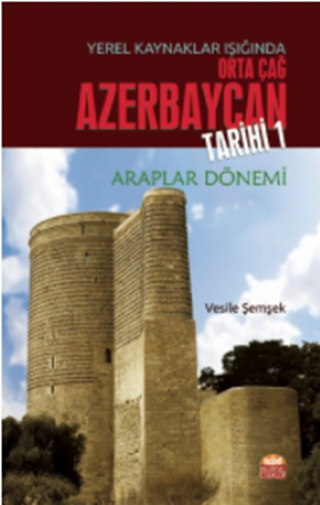
Yerel Kaynaklar Işığında Orta Çağ Azerbaycan Tarihi - I (Araplar Dönemi) / Medieval Azerbaijan History in the Light of Local Resources - I (Arab Period)
Azerbaijani geography has hosted many different states throughout history. Manna, Midiya, Atropatena, Albania can be cited as examples to the states that were established and ruled in Azerbaijan since various periods of ancient times. Islam spread throughout the region during the Arab period, which started with the Islamic conquests. In the authority vacuum created by the decline of the Abbasid Caliphate, many local states such as the Sâciler, Shaddadids and Buwayhids dominated the region. XI. At the beginning of the century, the Oghuz Turks, who moved westward from Central Asia, dominated Azerbaijan.
When we look at the political and cultural history of the states established in Azerbaijan in the process of Turkish-Islamic history, it is possible to understand the importance of the values of this ancient civilization more easily.
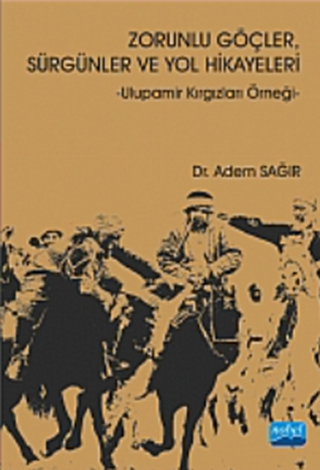
Zorunlu Göçler Sürgünler ve Yol Hikayeleri - Ulupamir Kırgızları Örneği- / Forced Migrations, Exiles and Road Stories - The Case of Ulupamir Kirghiz-
This book is a whole story of existence in itself. When their leaders, whom they regarded as great heroes, left the will, "Don't forget your Turkishness, don't forget your tradition, don't forget your religion", they embraced their culture with their power. In time, both the beginning and the liberation of the exile communities from their general characteristics turned into an existence story. When we first arrived in Ulupamir Village, we were excited to investigate this story. The extremely hospitable village people seemed at first impressions left to their fate. At night, the village was falling into darkness; because, as they say, it was the only Turkish guard village. The water did not flow in the summer, the arable lands were reduced in the village, the animal husbandry was not bringing money, it was said that the only handicraft workshop in the village would be closed. The population was increasing gradually and another migration story was beginning towards the metropolitan cities. Despite all this, they were resisting the years, keeping their culture alive and trying to announce this to the whole world with their summer cultural festivals. The most important significance for Turkey as a cultural community of the Kyrgyz Ulupamir we faced at that time. Festivals, manaschi, Handicrafts, folk traditions and customs developed belongs birth, clothes and all other cultural chatting with were providing an important contribution to Turkey's cultural diversity.
